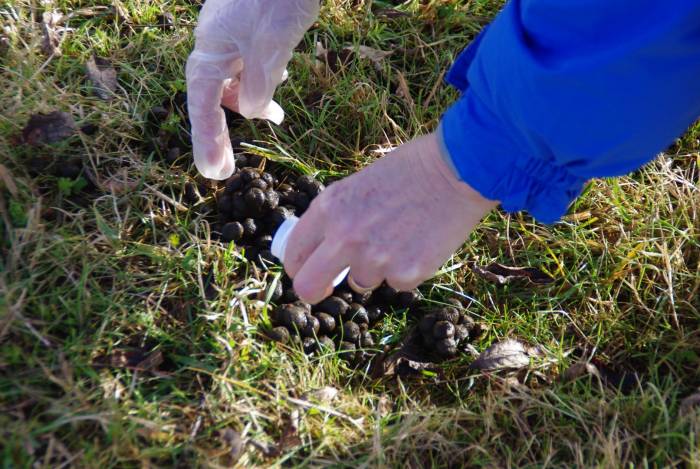18th April 2023
Sheep farmers can make the most of funding from the Defra Animal Health & Welfare Pathway with a little planning to optimise the timing of the Worming Treatment Check, says the Sustainable Control of Parasites in Sheep (SCOPS) Group.
Eligible livestock farmers in England can currently access £436 funding for a vet-led health and welfare review and a Worming Treatment Check. While the vet review should focus on issues most appropriate for an individual flock, be it lameness, fertility or other diseases, the Worming Treatment Check is designed specifically to determine the effectiveness of an anthelmintic (worming) treatment on a farm.
Speaking on behalf of SCOPS, independent sheep consultant Lesley Stubbings says: “The Worming Treatment Check is not a definitive test for anthelmintic resistance, but it does start you on a path to understanding which wormer groups are working effectively on your farm. By putting a little thought and preparatory work into when you carry out this test, you can make it a really useful start to understanding how to make the most of any worming treatments.
“Eligible farmers have six months from the point of registration to complete the Worming Treatment Check, but the important thing to remember is that you should only carry it out on lambs that you know need to be treated because their worm burden is high enough. Ideally this means carrying out a faecal egg count (FEC) before starting the Worming Treatment Check, so you can make sure the timing is optimal. You cannot check the effectiveness of a treatment at killing adult worms if there are not enough worms present in the first place.”
The Worming Treatment Check consists of two FECs. One is taken at the time of treatment to measure the number of adult roundworms present in the lambs. A second is then taken at a set interval after treatment (seven or 14 days) and the difference determines how effective the treatment has been at killing the worms in the sheep. Participating farmers will receive a sampling kit, instructions explaining how to take good samples and packaging with pre-paid postage back to the lab.
Ms Stubbings continues: “It is very important the Worming Treatment Check is carried out at an appropriate time, for example in June/July when there are lambs at pasture with a FEC that indicates they require treatment. A minimum FEC of 250 eggs per gram is needed for the test to be worthwhile, so discuss with your vet or adviser doing some monitoring ahead of the using the check.
“The Worming Treatment Check must be carried out by an accredited laboratory, listed on the Defra website. The lab will send out kits with instructions enabling you to collect your own samples to post back, then a report will be provided to you and your vet. On the basis of the results, you can discuss product choices with your vet and/or adviser, look at how you can use ongoing FEC monitoring to improve worm control in your flock, and test other groups of wormers over time.”
SCOPS has created a dedicated page on its website to provide resources to farmers on maximising the Worming Treatment Check. Visit www.scops.org.uk/treatmentcheck for tips on timings, product-choice, dose rates and techniques, and ongoing monitoring.
Kevin Harrison, a sheep farmer on the Gloucestershire/Somerset border and SCOPS Steering Group Chair, says: “I know from experience that it’s not as simple as thinking one test will give you a definite answer on anthelmintic resistance. It takes a series of these tests over different years and seasons to build a complete picture of the efficacy of wormers on a farm – so use this opportunity as a starting point and build on it. It is never too late to start when it comes to slowing the development of resistance, and using a fully effective treatment when lambs do need worming will pay dividends in terms of lamb performance.”
